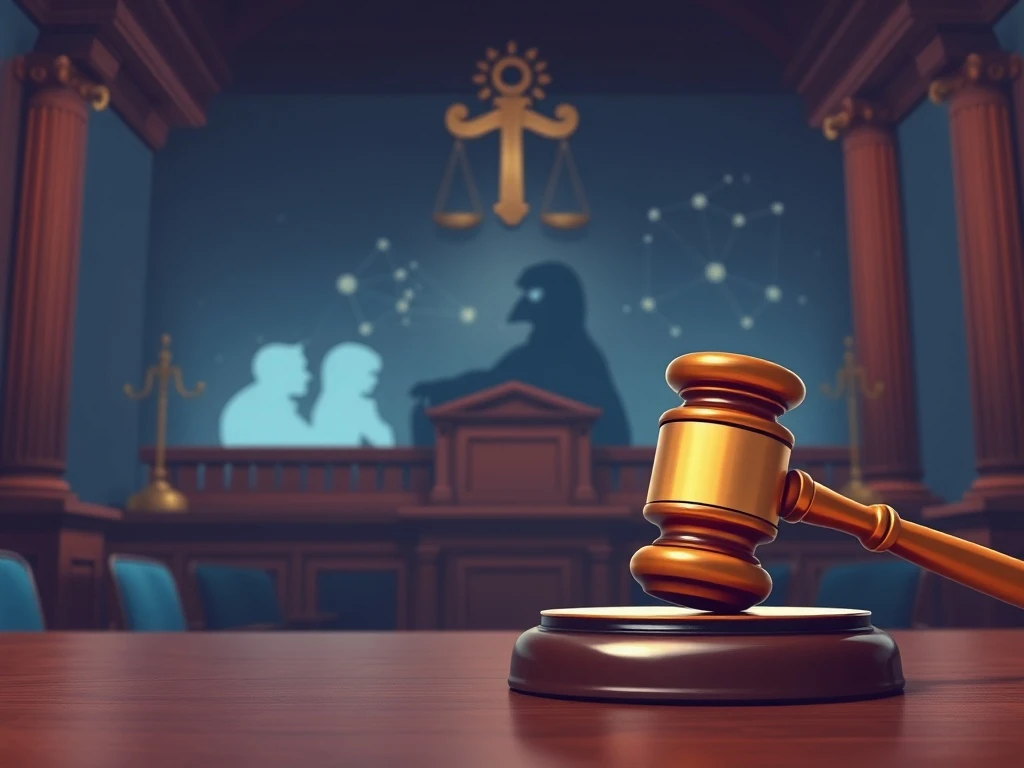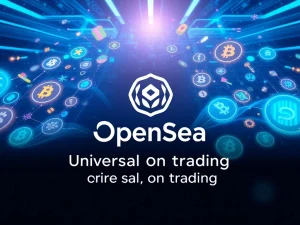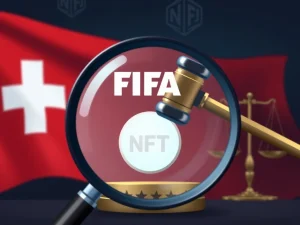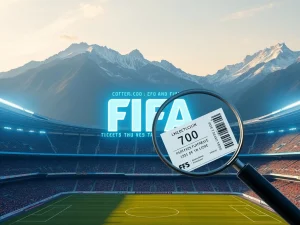Yuga Labs Victorious: Judge Dismisses Landmark NFT Securities Lawsuit

A significant development has emerged in the world of Web3, directly impacting prominent projects like the **Bored Ape Yacht Club**. A United States judge recently dismissed a major **crypto lawsuit** against **Yuga Labs**, the creators behind the iconic NFT collection. This ruling carries substantial implications for the ongoing debate about whether non-fungible tokens (NFTs) should be classified as securities.
Understanding the Yuga Labs Lawsuit Dismissal
In a pivotal decision, Judge Fernando M. Olguin ruled that the plaintiffs in the investor lawsuit against Web3 powerhouse **Yuga Labs** failed to demonstrate that the company’s NFTs meet the legal definition of securities. This dismissal, issued in a case originally filed in 2022, marks a significant moment for the digital asset industry. Essentially, the court found that the plaintiffs could not show how Bored Ape Yacht Club (BAYC), ApeCoin (APE), or other NFTs sold by Yuga Labs satisfied the three crucial conditions of the **Howey Test**.
The Howey Test is a standard established by the Securities and Exchange Commission (SEC). It determines whether a transaction qualifies as an investment contract, therefore classifying it as a security. For many, this ruling offers a clearer path forward for NFT projects. It differentiates between genuine digital collectibles and regulated financial instruments.
The Howey Test: A Closer Look at Securities Classification
The **Howey Test** originates from a 1946 U.S. Supreme Court case, SEC v. W.J. Howey Co. It provides a framework for identifying an ‘investment contract,’ which falls under the definition of a security. This test features three primary prongs. All three must be met for an asset to be deemed an investment contract:
- An Investment of Money: This first prong simply requires that an investor commits capital to an enterprise. People typically purchase NFTs with cryptocurrency, which represents an investment of money.
- A Common Enterprise: This prong demands a shared business venture where the fortunes of the investor are intertwined with the success or failure of the promoter or third party. Critics often argue about the exact nature of this ‘commonality’ in decentralized crypto projects.
- An Expectation of Profits Solely from the Efforts of Others: The final prong is often the most contentious in crypto cases. It requires investors to anticipate profits primarily from the managerial or entrepreneurial efforts of others, rather than their own actions or market forces.
Judge Olguin’s decision meticulously analyzed each of these conditions concerning the **Yuga Labs** offerings. This careful examination provided crucial clarity on how the legal framework applies to the unique characteristics of NFTs.
Why Yuga Labs NFTs Failed the Howey Test
Judge Olguin’s ruling detailed precisely why the **Bored Ape Yacht Club** and other Yuga Labs NFTs did not satisfy the conditions of the **Howey Test**. This breakdown offers valuable insights into the legal perspective on digital collectibles versus investment contracts.
No Investment Contract, But Consumable Benefits
First, the court addressed the nature of the **NFTs** themselves. Yuga Labs marketed its NFTs as digital collectibles. These collectibles came with membership perks to an exclusive club. Judge Olguin noted that this structure positioned them as consumables rather than investment contracts. He wrote, “The fact that defendants promised that NFTs would confer future, as opposed to immediate, consumptive benefits does not alone transmute those benefits from consumptive to investment-like in nature.” This statement clarifies that promised future utility, such as exclusive access or community membership, does not automatically convert an NFT into a security. It emphasizes the distinction between a benefit derived from ownership and a financial return on investment.
The judge carefully considered the intent behind the purchase. Buyers of **Bored Ape Yacht Club** NFTs were acquiring digital art and access. They were not primarily seeking a financial return generated by Yuga Labs’ efforts. This distinction proved critical in the court’s analysis. Therefore, the first prong of an ‘investment of money with an expectation of profit’ was not sufficiently met in the context of a securities offering.
Absence of a ‘Common Enterprise’
Furthermore, the plaintiffs failed to establish a ‘common enterprise.’ The judge highlighted that the **NFTs**, which trade on public blockchain networks, did not create an ongoing and dependent financial link between the purchaser and Yuga Labs. Attorney Bill Hughes from Consensys further explained on X that investors who purchased NFTs from the company paid a fee to Yuga that was independent of the NFT prices. This structure suggests a lack of the interconnected financial destiny required for a common enterprise.
The court found no evidence of a direct, interdependent relationship where the success of the NFT purchaser was tied directly to the continued managerial efforts of Yuga Labs in a way that would constitute a common enterprise under the Howey Test. The market for these NFTs operates independently, driven by supply, demand, and collector interest, rather than solely by Yuga Labs’ ongoing financial success. This separation proved crucial for the ruling.
No Explicit Expectation of Profit
Finally, Judge Olguin ruled that **Yuga Labs** did not make explicit promises of profit to prospective NFT buyers. The project’s roadmap, while outlining future developments, did not satisfy the conditions under the Howey Test regarding an expectation of profit. Olguin stated, “Statements about a product’s inherent or intrinsic value are not necessarily statements about profit.” He acknowledged that statements about NFT prices and trade volumes might be a ‘closer call,’ but even these, by themselves, failed to establish a clear expectation of profit from the efforts of Yuga Labs.
This point is vital for **NFTs** and the broader crypto market. Many projects issue roadmaps and discuss market performance. However, the court distinguished between general market sentiment or potential appreciation and a direct promise of profit generated by the issuer’s managerial efforts. The ruling suggests that merely observing price fluctuations or discussing a project’s potential value does not equate to offering a security. This aspect of the **crypto lawsuit** provides significant guidance for future NFT project marketing and disclosures.
Broader Implications for the NFT Market and Regulation
The dismissal of this **crypto lawsuit** against **Yuga Labs** sends a powerful message across the Web3 ecosystem. It provides a degree of legal clarity for NFT creators and investors alike. This ruling reinforces the idea that not all digital assets automatically qualify as securities, even if they have market value and potential for appreciation.
This decision could potentially influence future enforcement actions by the SEC. It sets a precedent that the agency must demonstrate a clear fulfillment of all three Howey Test prongs. Simply being a popular or valuable digital asset is not enough. The ruling emphasizes the importance of how projects are marketed and the explicit promises made to potential buyers. Projects focusing on utility, community, and digital collectibles, rather than explicit investment returns, may find more legal protection under this interpretation.
For the **Bored Ape Yacht Club** and other similar **NFTs**, this dismissal offers a sigh of relief. It validates their model as digital collectibles with consumptive benefits. It also provides a benchmark for new projects entering the space. Developers can now better structure their offerings to avoid securities classification. However, the legal landscape for crypto remains complex and evolving. This ruling addresses one specific case, and other types of digital assets or different marketing strategies might still face scrutiny. Ultimately, the **Yuga Labs** case highlights the nuanced application of existing securities laws to novel blockchain technologies.









